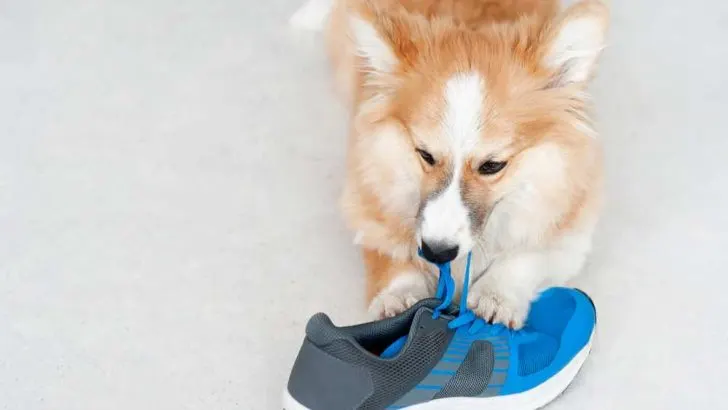You have a corgi, but you don’t have one shoe that hasn’t been chewed on; what to do?
Unsurprisingly, corgis are gaining in popularity. Just a decade ago, these little furballs weren’t even in the top twenty dogs in the US; now, they’re in the top ten. That’s a pretty big jump.
Reasons why they’re popular are mostly due to social media, pop culture, and of course, the queen of England.
However, all of those sources, including the queen, fail to mention that corgis, like all dogs, aren’t perfect.
Before we start getting hate mail from corgi owners, we’ll try and explain what we mean.
Today’s topic might save your furniture and wardrobe from getting ripped apart by a corgi. We’re discussing – Are corgis aggressive chewers?
We’ll cover the basics first. Just so there’s no misunderstanding, we’ll define the term “aggressive chewer”.
Then we’ll go over some of the reasons why a corgi might be a heavy chewer.
Finally, we’ll give you some advice on how to deal with this problem.
Alright, let’s get into it.
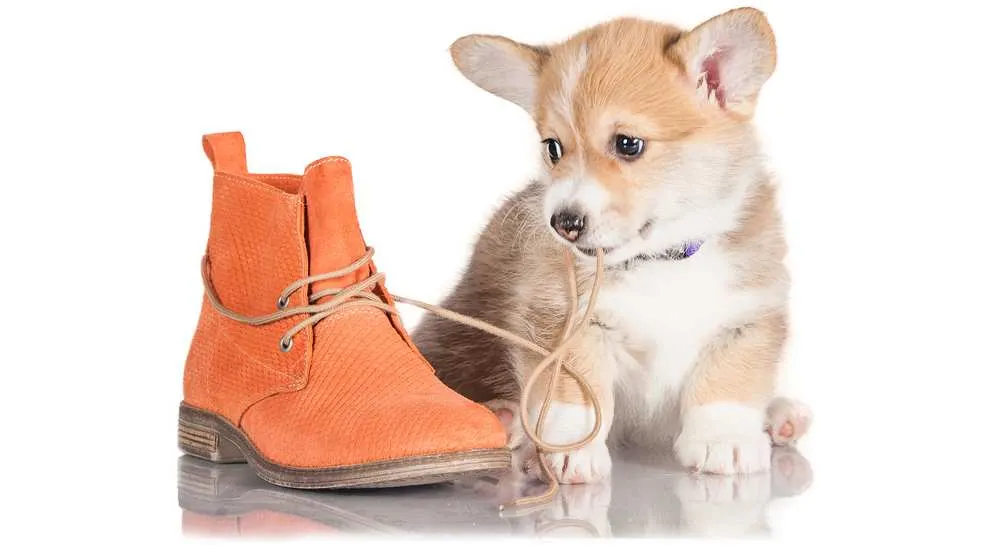
What Is An Aggressive Chewer?
Aggressive chewers are dogs that destroy or swallow any toy or object they feel like.
Even though there are breeds that are more prone to chewing than others, it all comes down to the individual dog at the end of the day.
Aggressive chewing can be dangerous if a dog gets a hold of something hazardous.
If your dog is an aggressive chewer, you’ll have to find something that is not so easily destroyed since, if not properly trained and disciplined, they will chew on your belongings.
Learn More: Do Corgis Eat Toys? Do They Love Chewing Toys Or Not?
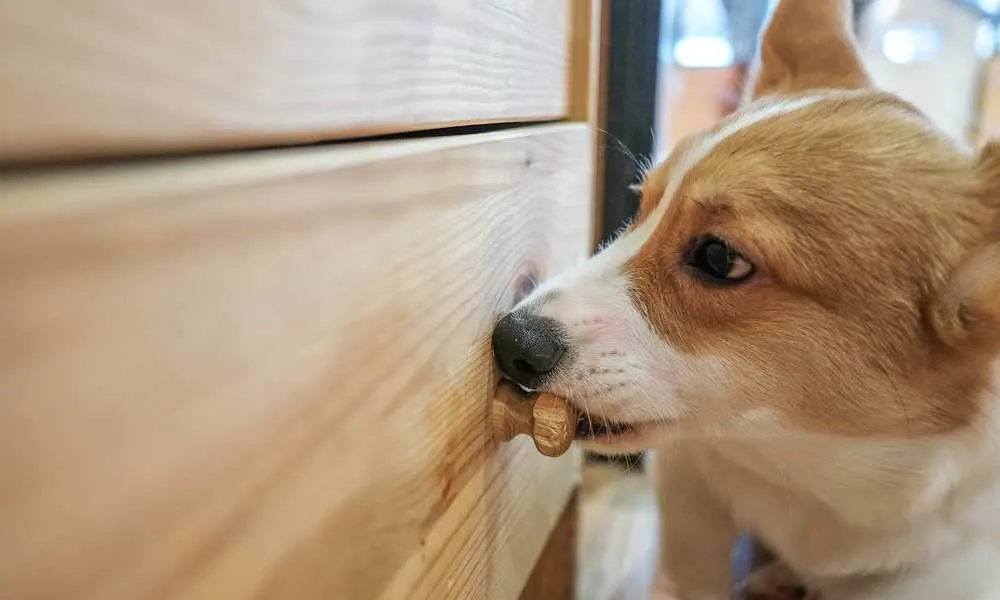
Are Corgis Aggressive Chewers?
Alright, so, aggressive chewers = destruction. Let’s see how corgis fair in this respect.
Some corgis can indeed become aggressive chewers. However, we don’t think it would be fair to accuse every corgi of being an aggressive chewer.
We mentioned that aggressive chewing isn’t necessarily tied to the breed of the dog.
Most corgis like to chew. It keeps them busy, improves their dental hygiene, and fires up their sense of taste and smell.
They might enjoy destroying plush toys and ropes. There’s something about those objects that won’t let a corgi rest until it destroys them.
Some corgis can take it a bit too far.
Plush toys and ropes are nothing compared to your shoes, slippers, and, God forbid, furniture.
With all of that in mind, let’s see why some corgis chew on everything and how to deal with that situation.
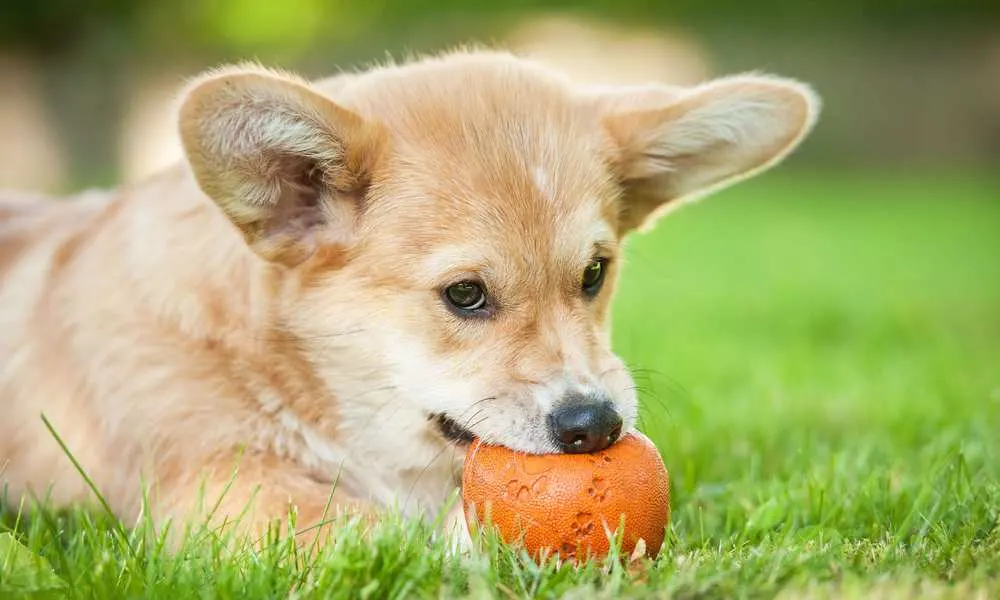
Corgi Puppies
If your corgi puppy is chewing on everything, the most likely reason is that they’re teething. Just like with us when we were babies, the teething period lasts for six months before the real teeth set in.
During this time, your puppy will experience some discomfort. By chewing on objects and potentially destroying them, the puppy’s gums feel a lot less sore.
It’s like having chickenpox and wanting to scratch all the time; it just relieves the itching sensation. Something similar happens with puppies; the difference is, they don’t have any scars afterward.
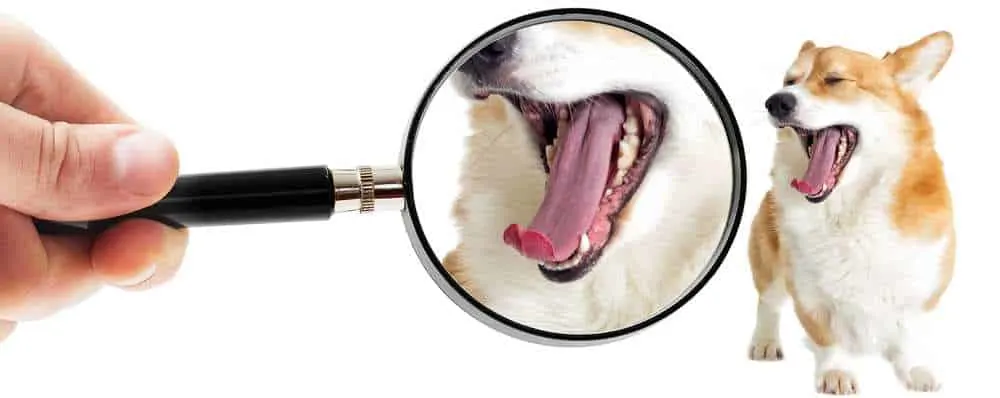
When Do Corgis Stop Chewing?
The good thing is, after the teething period is over, a lot of corgis stop chewing as much.
However, one thing to keep in mind is that corgis are an intelligent breed, which means they’re also very curious.
If they’re chewing on something even after they’re teething period is over, it’s because they’re exploring the world.
We think that at least some level of chewing is inevitable with corgis.
Why Does My Corgi Chew On Everything?
There could be lots of reasons why your corgi is an aggressive chewer.
We’ll mention the most common ones here. If none of them prove to be true for your corgi, seeing a veterinarian is highly recommended.
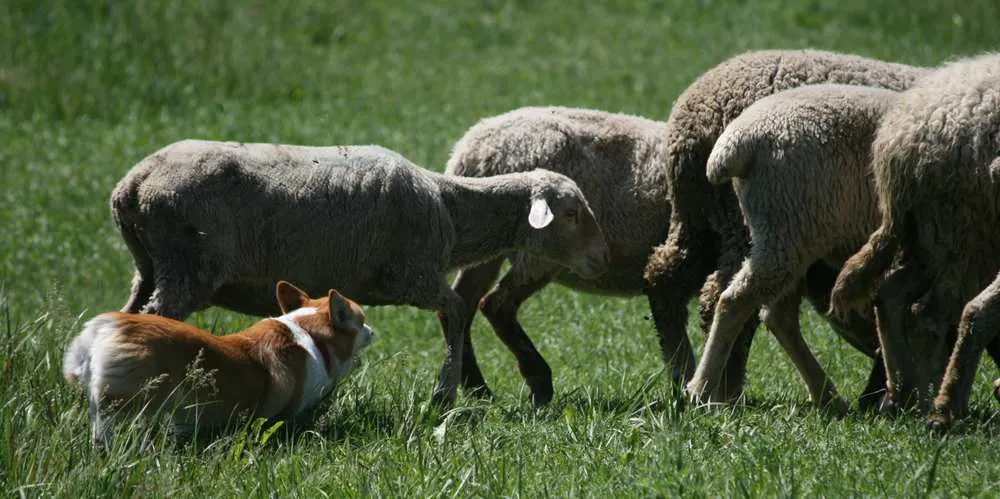
They’re Energetic Herders
There are two types of corgis: the Pembroke Welsh corgi and the Cardigan Welsh corgi.
Both of them were used primarily for herding, which means they are full of energy.
Corgis would do their job by nipping at the heels of cattle.
You could say corgis feel the natural urge, more so than some other dogs, to bite and chew in order to feel like they’re doing something productive.
Today, corgis aren’t used for herding, but they still have a lot of energy. One way of spending that energy is by ripping a rope or a toy to shreds.
We’ll address how to deal with this a little later in the article.
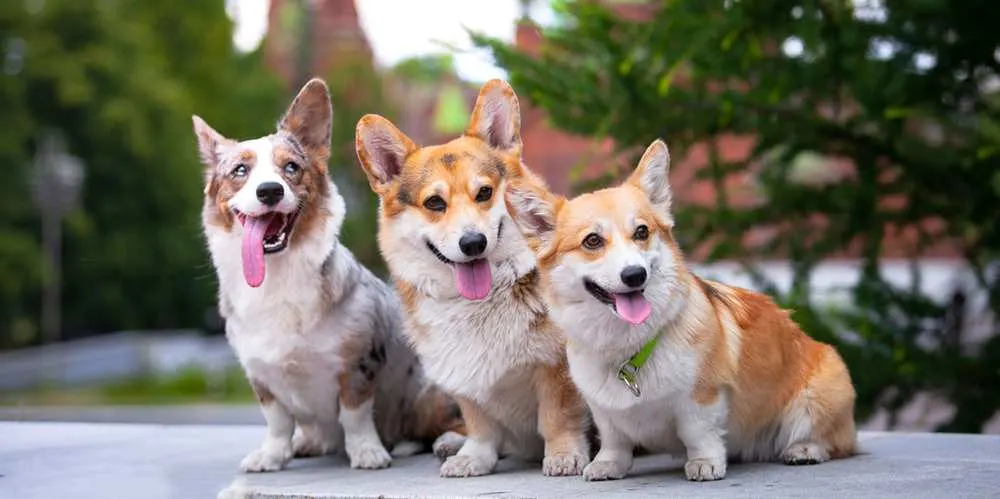
They Need More Attention
Corgis are not low maintenance dogs. If you plan on getting a corgi, you better be ready to spend some quality time with them on a daily basis.
Plenty of exercises and a decent social life are a must, especially if you bought new shoes that you forgot to put away.
In the case that you do neglect your corgi, don’t be surprised if you come back home one day and find that your living room looks like someone had a very rough pillow party in it.
Suppose you do freshen up your corgis daily routine. Does that mean they will change their habits immediately – no, not necessarily.
Dogs need time to change, just like us.
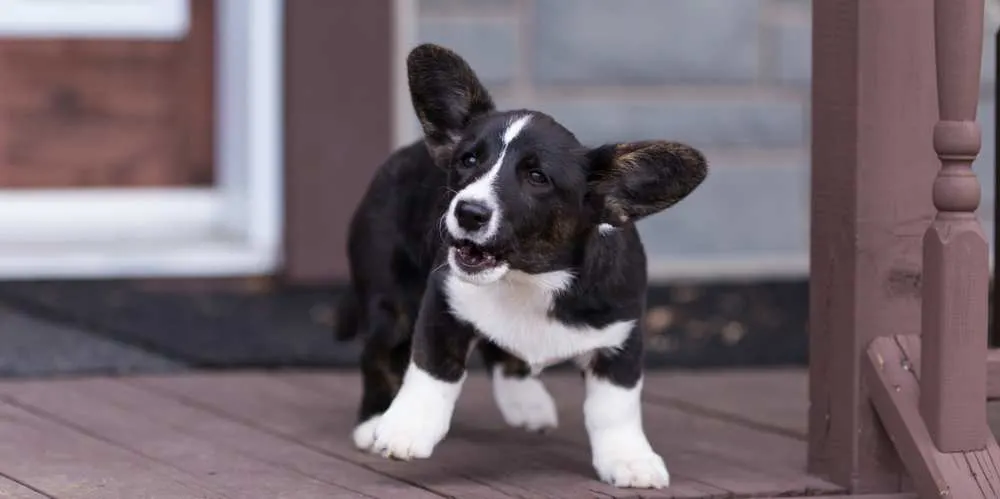
Separation Anxiety
Separation anxiety can indeed be the cause of aggressive chewing.
If your corgi acts like he’s about to have an anxiety attack every time you’re about to leave the house, then he might be dealing with separation anxiety.
Some of the symptoms that separation anxiety includes are:
- Destroying things when the owner leaves the house
- Aggressive behavior when the owner returns
- Following the owner everywhere around the house
We’ll address how to deal with separation anxiety in the next section.
Keep in mind; most dogs don’t like when their owners leave the house.
However, if your dog has a nasty reaction whenever you’re about to leave the house, then you have a problem on your hands, and you need to work on fixing it.
How To Deal With It?
Now we’ll give you some ideas on how to deal with a corgi that is an aggressive chewer.
We don’t recommend trying to rid a corgi of its chewing habit completely; it probably isn’t going to happen. What you can do is manage the damage that is being done.
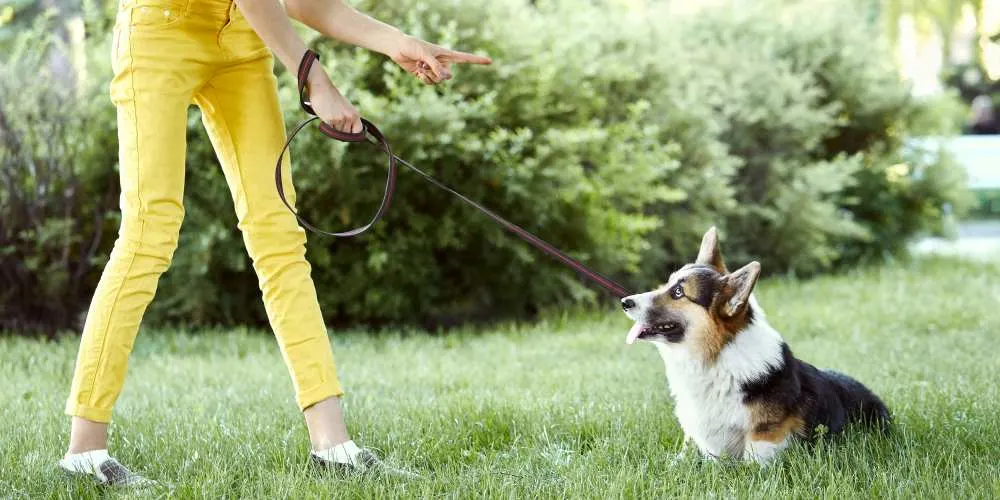
Refrain From Cardinal Punishment!
Imagine this, you come back from work, and you see your new slipper ripped to pieces. At the same time, your corgi comes to greet you, wagging its tail, happy to see its owner.
You know your corgi destroyed your slipper, so you start lashing out on them, thinking they get the message.
This is ineffective, especially in the long run.
First, corgis can be very individualistic pups. They’re loyal and would do anything to please their owner, but they can’t stand when someone yells at them.
Depending on your corgi’s history, it’s not uncommon for a corgi to start barking and growling at a person they feel threatened by.
The second reason why lashing out after the fact won’t help because dogs are creatures of the moment.
If you’re “dishing out punishment,” make sure it’s for something the dog did just a few seconds ago. Otherwise, it’s pointless.
If you see a pillow that was ripped hours ago and your dog is sleeping right now, wait until you catch them in the act.
Alright, with that out of the way, let’s delve into some practical ideas you can apply to deal with your corgi’s aggressive chewing.
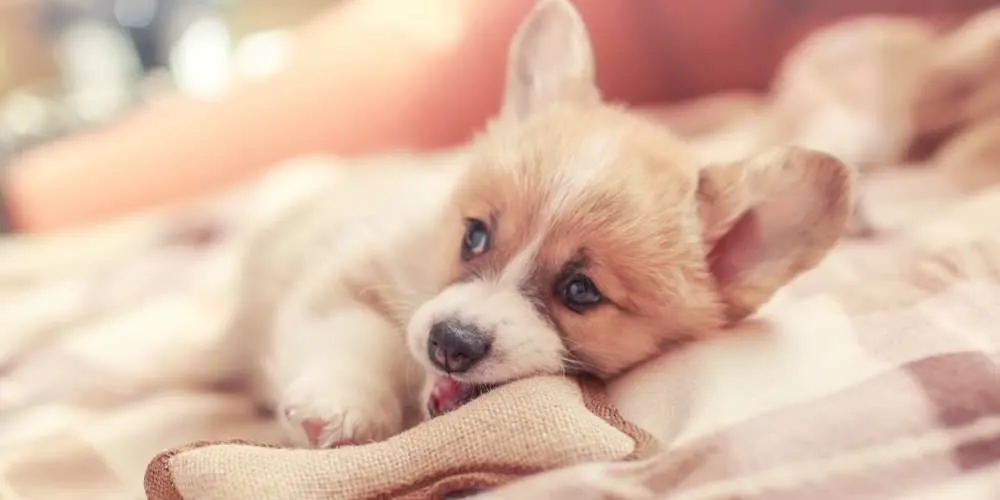
Teething Puppy
If you have a puppy that is teething, freezing a wet towel should help with the pain. Make sure to pay attention to them when they’re chewing the towel, so they don’t accidentally swallow a piece of it.
Teach Your Corgi What To Chew
Many owners buy their dogs’ cheap shoes the dogs can chew on, so they stop chewing the owner’s shoe. This has the opposite effect.
Your dog will think chewing shoes is okay. Dogs are not able to assess which shoes are okay for chewing and which aren’t.
Anything you don’t want your dog to chew on, put it away. Closets and shelves are your allies. If your dog can’t get to it, it can’t chew it.
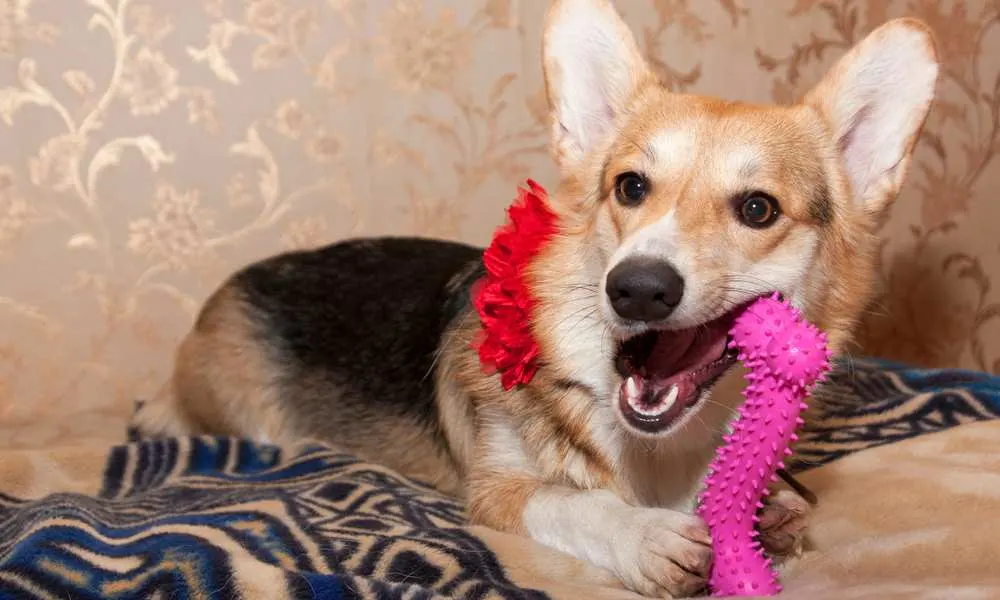
Buy Interesting Toys
As we said, you can’t completely reduce a corgi’s chewing. What you can do is buy something that is almost impossible to destroy.
If you have a yard, herding balls are a good option since they can’t bounce and can’t be picked up by a dog’s teeth. Corgis are herders; after all, this is right up their alley.
Expect some barking, though; they think they’re herding cattle and not a dog toy.
Also, a food dispenser toy is an excellent option for a corgi that is an aggressive chewer.
Just trying to open the toy will tire them out, and they won’t have the energy to go on a destructive chewing spree.
Remember, corgis can get bored if you always use the same toys, so switching between a few toys every week is a good idea.
See Also: Are Corgis Food Aggressive? Stop It In Time!
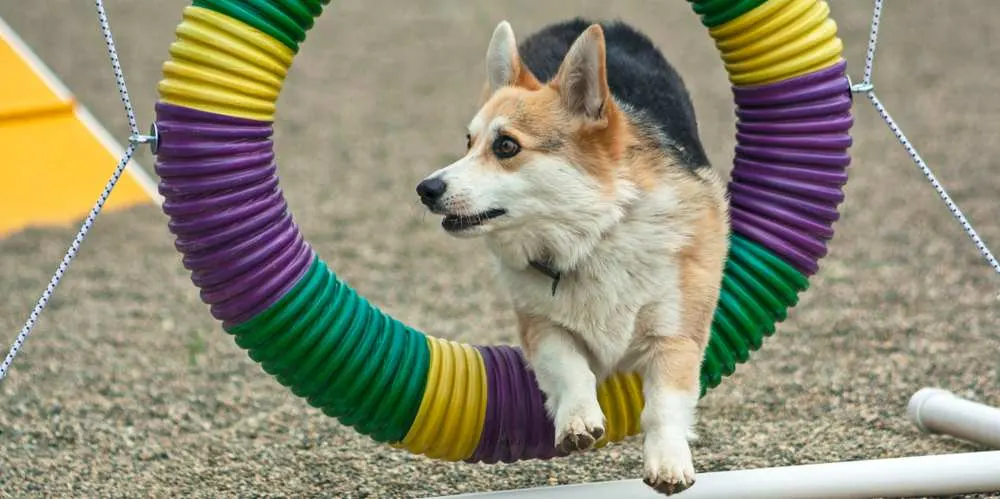
Exercise Routine
We’ve mentioned several times that corgis are high energy dogs. If they don’t have anything to do, they’ll become destructive. It’s not to spite you; it’s just to entertain themselves.
One way of battling that destructive behavior is by implementing a decent workout routine into your corgi’s everyday life.
We have a detailed article on corgi exercises right here. We highly recommend you go check it out before you give your corgi any kind of workout.
This article will help you decide which exercises are more suited for your corgi and how to start the routine without injuring your dog.

Social Life
To show your corgi what is okay and what isn’t, you need to make sure they spend some quality time with people and other dogs as well.
If they spend most of their time by themselves, they won’t know how to behave, and they definitely won’t know what you as their owner want from them.
Ripping apart shoes and furniture with their teeth will become just another day at the office for them.
The exercise routine we mentioned is a great way to give your corgi the socialization it needs.
One thing to note, though. Corgis aren’t necessarily great with kids. They can be, but some corgis don’t like noisy sounds children are prone to making.
In addition to that, corgis that haven’t been taught not to herd people, won’t shy away from nipping kids’ ankles to “get them in line.” Bossy creatures, those corgis.
So if you have children, don’t leave them alone with a corgi until you see how all of them are getting along to avoid a potentially unpleasant situation, both for the kids and the corgi.
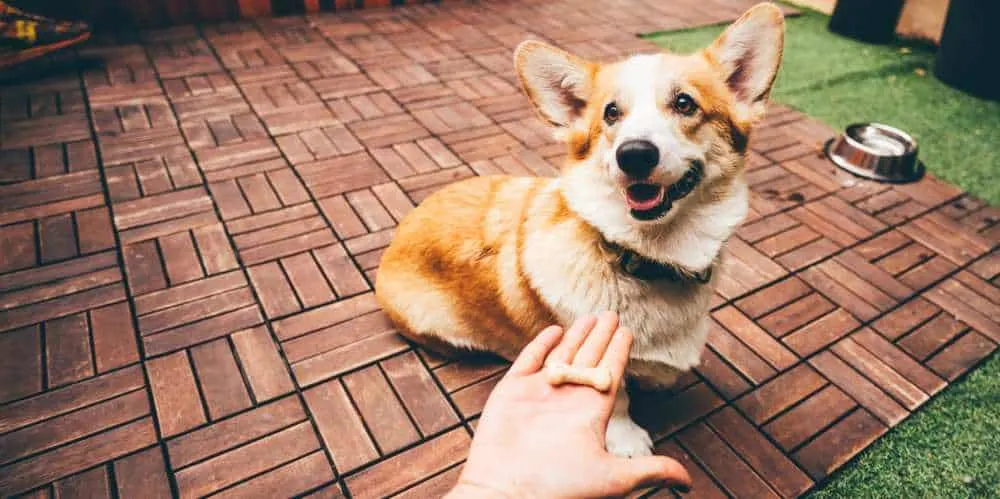
The “Give” Command
You want your corgi to drop whatever object it has in its mouth. Offer him a delicious treat in exchange for the item. When you do, say the word “give,” he needs to start associating the word give with the dropping of the object. In his mind, though, he’s getting a treat.
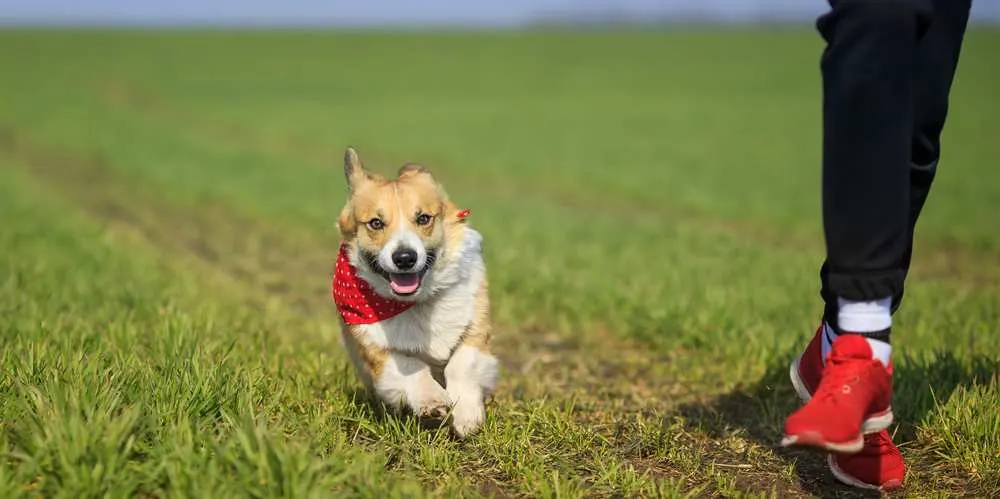
Refrain From Reacting
One of the worst things that an owner can do is run after a corgi that has something in its mouth. This is the opposite of what should be done.
As soon as you start running after them, your corgi is instantly having a lot of fun. They’re spending time with their owner, and they’re running around like crazy; how great is that?
In the long run, it isn’t good. If your dog starts thinking that putting something in their mouth, chewing it, and then running away is a recipe for fun, they’ll start doing it as often as possible.
What you can do is call them by their name and let them bring you the object instead of you running after them. The “Give” command we previously mentioned should do the trick in this situation.
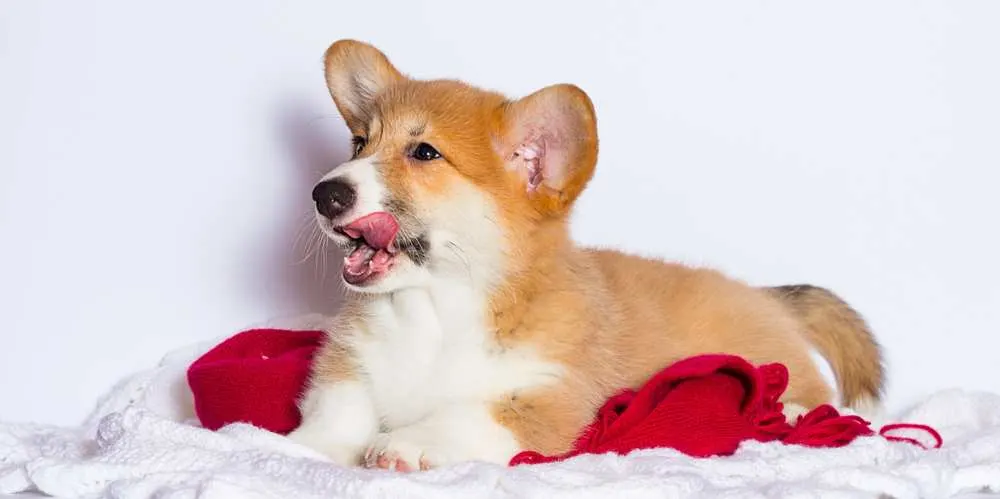
Taste Deterrent
There are taste deterrents you can spray on the objects you don’t want your corgi chewing on. These can be a hit or miss, so some supervision is necessary.
If your corgi is not deterred from chewing the object you just sprayed, then put it away if you can. Also, for the deterrent to be effective, you need to reapply it every few days or so.
Read More: Learn How To Stop Aggression In Corgis
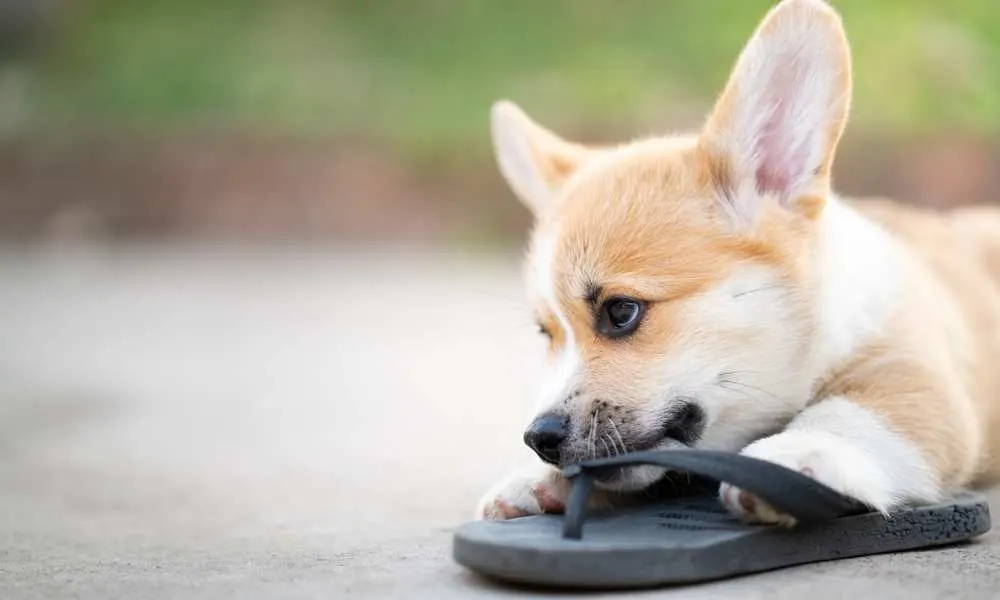
Conclusion
Whether or not your corgi will be an aggressive chewer comes down to an individual dog.
Some of them are, some of them are not. But this is a risk you’ll have to take with any dog, and most dogs don’t come close to corgi cuteness.
For people who already have a corgi that is an aggressive chewer, we’ve given you tools to deal with this problem.
Remember, some chewing is expected; at the end of the day, dogs will be dogs; putting things in their mouth and trying to break them is in their DNA.
If you’re having difficulty dealing with an aggressive chewer, even after applying the tips we gave you, we recommend you consult a dog behaviorist.

